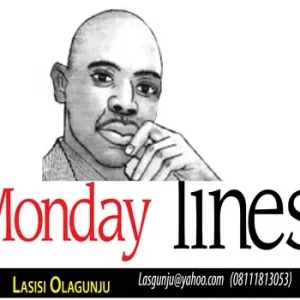When Nigeria’s Minister of Foreign Affairs, Ambassador Yusuf Maitama Tuggar, recently urged rich nations not to approach trade and investment relations with Africa through a lens of paternalism, he echoed a sentiment long overdue for amplification.
His candour and composure in articulating Africa’s yearning for a fairer, more equitable global economic order deserve commendation. Since assuming office, Ambassador Tuggar has brought an invigorating dynamism and intellectual clarity to Nigeria’s foreign policy. A clarity that situates the country’s diplomacy at the intersection of dignity, partnership, and self-respect.
However, while not disagreeing with his call to richer nations, it must also be said that the weight of responsibility for Africa’s progress does not rest solely on external actors.
The “shared responsibility” principle in partnership development demands that African leaders hold up their side of the bargain. Credibility in global affairs begins at home. No one takes a nation seriously if it fails to take itself seriously.
Across the continent, and indeed in Nigeria, too many lapses continue to undermine the legitimacy of our moral claims on the international stage. Nigeria today stands as a curious case study: a country of immense potential, yet with diplomatic missions abroad left for years without substantive ambassadors; effectively breaking records for the wrong reasons.
For career diplomats who have given decades of service, this represents not just administrative oversight but a deep institutional disrespect. For host nations and diaspora communities, it signals unseriousness.
Similarly, the existence of the Nigerians in Diaspora Commission (NiDCOM), a critical organ under the supervision of the Ministry of Foreign Affairs, without a constituted Board as mandated by its establishment Act, sends mixed signals. We cannot tout Diaspora engagement as a pillar of economic diplomacy while failing to operationalise its governance framework.
Equally concerning is the chronic underutilisation of diaspora assets. These are human, financial, and intellectual. Despite glowing policy declarations, the mechanisms to harness these assets remain largely cosmetic.
A functioning Board would provide oversight, strategic direction, and the checks-and-balances necessary for accountability. Without it, NiDCOM risks being perceived as a one-person institution rather than a national platform owned by both the state and its diaspora citizens. This undercuts the credibility of its programmes, weakens stakeholder buy-in, and delays the maturation of NiDCOM into the robust coordinating agency envisaged by law and policy.
Constituting the Board is not a favour to the diaspora. It is a statutory requirement and a governance necessity. In the global contest for diaspora capital, talent, and soft power, Nigeria cannot afford such an avoidable weakness.
These lapses are symptomatic of a wider governance malaise across Africa: unfilled ambassadorial positions; incomplete boards of strategic agencies; underfunded missions; and ad hoc policy making that values optics over substance. When leaders fail to uphold institutional integrity, it weakens the very foundation on which calls for equitable partnerships are built.
If African nations must command respect globally, they must first model the discipline they demand of others. Leadership must transcend rhetoric. Here are a few clear pathways forward:
- Institutional Credibility: Fill key diplomatic and governance vacancies without delay, ensuring merit and continuity over patronage.
- Diaspora Empowerment: Move beyond symbolic diaspora rhetoric to structured programmes that leverage the diaspora as an indispensable partner in trade, innovation, and image-building.
- Policy Consistency: Adopt long-term foreign and economic policies insulated from political cycles, to assure partners of stability and reliability.
- Governance by Example: Prioritise transparency, accountability, and respect for the rule of law domestically because the most powerful form of diplomacy is internal order.
- Strategic Communication: Project Africa’s narrative with professionalism and coherence. Silence or inconsistency in global debates diminishes African credibility.
Ambassador Tuggar’s intervention should not end as another quotable moment. It must become a mirror for introspection across the African leadership spectrum. For every demand we place on rich nations to approach trade with fairness, let us match it with an equal measure of self-governance, discipline, and seriousness of purpose.
The world respects those who respect themselves. A credible, self-assured Africa, led by accountable governments and represented by empowered diplomats, will not beg for fairness. It will command respect.
Credit: www.proshare.co
Stay ahead with the latest updates!
Join The Podium Media on WhatsApp for real-time news alerts, breaking stories, and exclusive content delivered straight to your phone. Don’t miss a headline — subscribe now!
Chat with Us on WhatsApp




